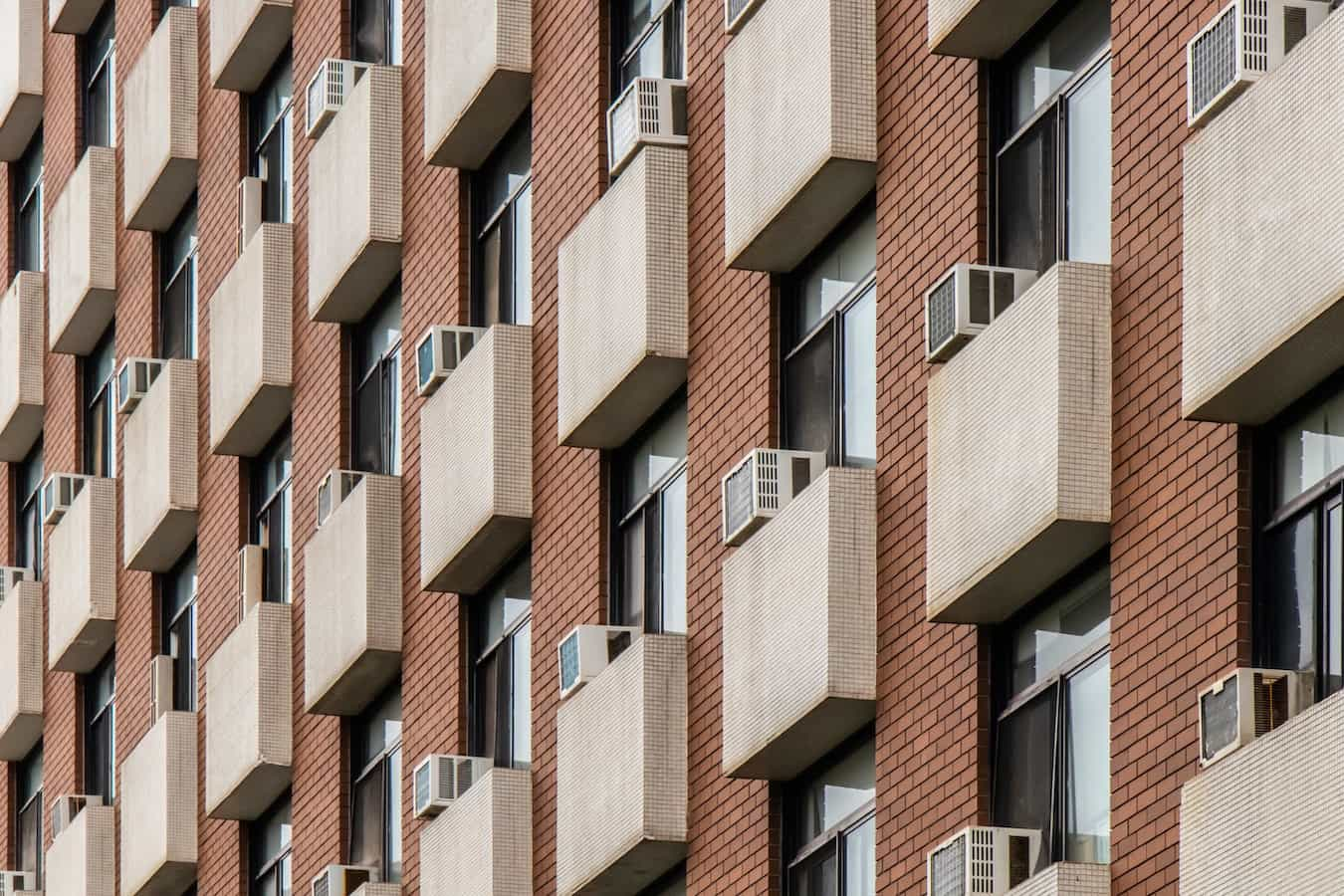Welcome to Community Living
If you own a property within a body corporate, you are part of the growing trend towards community living where you retain the benefits of privacy and lifestyle without the upkeep and responsibilities of private property.
Most properties located within a body corporate have centralised caretaking, grounds maintenance and mutual resources, providing peace of mind on matters of body corporate insurance, security, and the management of the common property.
When managed by a professional body corporate manager, your strata community will provide maximum value and service to you.
On this page:
As an owner, what part do I play?
What is common property or common areas?
Strata Insurance – the critical aspect of body corporate management
How does the strata scheme operate?
Where does the body corporate spend its funds?
What is covered under the building insurance?
What does the body corporate manager do?
Ensures body corporate legislative matters are being adhered to
What is a Body Corporate?
The process of subdivision of property for multi-unit development results in the need for a management body to facilitate management of the common aspects of the property. On registration of a Community Titles Scheme, a "Body Corporate" also known as “Owners Corporation”, ‘Strata Scheme’ or ‘Strata Community’ becomes incorporated. While state and territory legislation relating to body corporate management differs nationally, there are some commonalities in terms, and ‘body corporate’, ‘owners corporation’, ‘strata community’, ‘strata scheme’ all essentially mean the same thing and can be used interchangeably. While this is common knowledge for people working within the ‘strata’ industry, it does make it difficult for the average consumer or property owner to understand.
Bodies Corporate are regulated by state/territory-based legislation that has undergone many revisions both to deal with the changing property ownership trends and to adjust to the continually evolving body of knowledge and experience gained from regulating the industry.
Residing in an Owners Corporation offers members more affordable property with reduced shared costs of property maintenance. There are different types of bodies corporate including apartment blocks, attached townhouses, double-storey villa units or mixed-use developments (residential and commercial).
As an owner, what part do I play?
If you are the owner of a unit in a property that has an owners corporation, you are a "member" of that owners corporation. When a lot is sold, the new owner becomes a member. A tenant paying rent to an owner is not a member of the owners corporation and does not generally interact with the body corporate.
The owners corporation is responsible for a range of compliance and legislative matters, financial management, organising collective body corporate insurance and maintenance of essential services as well as organising general repairs. These responsibilities are usually delegated to the office bearers, or better yet, a professional manager who handles the various administrative processes of the association and acts as the trusted advisor to the owners corporation.
An important part of being a member of such an association is that you must adhere to some guidelines to ensure that members can live harmoniously together and that the buildings and other common areas are maintained in an attractive and consistent way. This usually means that changes to the outside of buildings, such as painting or the installation of air conditioners, satellite dishes, awnings, etc must be done in collaboration with other members or office bearers.
What is common property or common areas?
Most strata schemes have ‘common property’ or ‘common areas’. Common property usually includes the driveway, courtyard, and facilities such as the laundry area, gym, or pool and the open space on the property. This common property must be managed on behalf of all owners and have public liability insurance, so that it serves only for the purposes intended and doesn’t expose the association to unnecessary legal risks.

Strata Insurance – the critical aspect of body corporate management
The strata community normally pays for one insurance policy hat covers full replacement strata insurance for all the buildings and adequate public liability insurance for the common property.
When you own a unit in a property with a strata community, you need to be certain that all building and liability risks are covered for the property – particularly when walls, facilities and services are shared. In the event of an insurance claim, there is only one company to deal with and no doubt as to who will pay the sum insured of a strata insurance claim.
As a member of an association, you do not have to have a separate policy for building insurance if the strata insurance covers your property as it should be. This arrangement is normally more economical than a member buying their own strata insurance (this can also include contents insurance for the common contents inside your property with residential strata title), and you are assured of adequate liability insurance for the common property.
Take note that the common contents inside a property that has a residential strata title refer to unfixed items, such as appliances, works of art, equipment, fittings, and furniture.
Also, it’s best to get general advice from a strata insurance broker or underwriting agent so that you get an idea of how much compensation you will receive in case you file a strata insurance claim for the common contents in your residential strata.
Now, having adequate liability strata insurance cover for the common property, especially for properties with commercial strata title, is critical as a wide range of people have access to it, and accidents often result in significant claims – not to mention the legal expenses.
Members are still required to have insurance for their own contents and liability cover for car spaces and for visitors on their property.
Also, if you own a residential property and decide to rent it out for passive income, you might want to consider getting a “loss of rent insurance policy” so that you still get the sum insured in case you will encounter loss of income or loss of rent due to defined circumstances - this may or may not require a limited ABN.
How does the strata scheme operate?
Strata schemes managed by ACE Body Corporate Management have an individual bank account for each strata community under management. The manager is normally the sole signatory to that account under delegation from the members of the owners corporation.
An annual general meeting is held at the beginning of each financial year of the strata community. This meeting sets the budget and addresses any concerns of the members. This sets the "contributions" which the members must pay each year.
The amount contributed by each member is worked out based on a lot liability table included in the plan of subdivision. Other meetings, such as special or committee meetings, may be held if required by the members. The main component of the budget is usually the strata scheme’s insurance premium that covers the buildings and collective liability risks.
Other components are the caretaking, grounds maintenance, repairs, common lighting, maintenance of essential services and the manager’s fees.
Bodies corporates vary in the extent to which funds are accumulated in the strata community’s bank accounts. Many operate on a small margin over the normal annual operating costs while others plan ahead and accumulate some funds for major works such as painting, guttering replacements, fencing, paving etc. Should a major unbudgeted cost occur without sufficient funds in the bank, it is normal practice to establish a special levy to pay for that particular work.
Where does the body corporate spend its funds?
The Owners Corporation is responsible for ensuring full reinstatement insurance is in place for buildings together with insurance for public or collective liability.
It is also responsible for the maintenance of services that connect into the building and to ensure there is adequate public lighting and for the general upkeep of the exterior of the buildings and the common grounds.
It is responsible for the upkeep of all common items such as car and pedestrian security gates, intercoms, and public lighting.
What is covered under the building insurance?
The Body Corporate insurance covers damage and consequential damage to the building itself and all fixtures within the units. The insurance is for full reinstatement of buildings, but does not cover normal wear and tear, however it does cover legal liability on the common property.
Damage to carpets within a unit is specifically excluded. It is highly recommended that Landlord insurance be taken out to cover carpet damage and legal liability within tenanted units and car park lots. Owners and tenants must have their own contents and public or collective liability insurance for their own units.
Please take note that residential property owners who rent their units out, typically do not need to have a limited ABN. However, renting commercial properties under an owners corporation might still require one.
What does the body corporate manager do?
The body corporate/ owners corporation manager provides continuity of management processes and record-keeping for the strata community. Without a professional manager, problems can arise with frequent changes in voluntary members or office bearers who undertake duties on behalf of all owners, resulting in different standards of record keeping and potentially inadequate or missing records. The owners corporation manager is also importantly the trusted advisor of the owners corporation, using their broad experience to guide owners in the right direction.
Ensures body corporate legislative matters are being adhered to
The manager resolves disputes and provides an objective approach to dealing with members’ concerns or complaints. While conflicts are rare, some situations can cause friction, including tenanted units, parking, noise, adjacent developments, etc. An objective, professional body corporate manager, can effectively assist in these situations.
Also, the manager looks after body corporate administration and handles day-to-day paperwork and requests. The manager organises annual and special general meetings including minutes, facilitates the setting of budgets, collects members’ contributions, and maintains a complete set of financial statements.
The manager also administers strata insurance and deals with brokers and directly with insurance companies as necessary to obtain the most effective and economical coverage for the owners corporation.
The manager also submits strata insurance claims, schedules repair work, and provides general advice and options to members in relation to public liability issues. This ensures that necessary processes are undertaken for strata insurance cover and record-keeping against possible future claims for public liability.
The manager administers the maintenance of the owner corporation facilities and essential services – obtains quotes and schedules works as required to ensure that the body corporate is maintained in good condition and presents no dangers to visitors or members, and schedules essential services reports as necessary and reviews compliance with current legislation.
Lastly, the owners corporation manager schedules grounds maintenance and liaises with caretakers, gardeners, and tradespersons to ensure that grounds and common property are maintained to members’ requirements.
For more information, please contact us. ACE Body Corporate Management is a team of experienced qualified strata experts who have been engaging in strata management for over 25+ years. We understand every state's strata regulations and have branches across Australia. If you have any enquires or are looking for a professional strata management service, don't hesitate to contact us.



